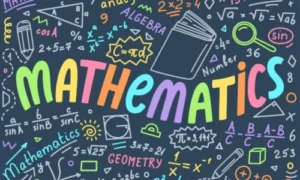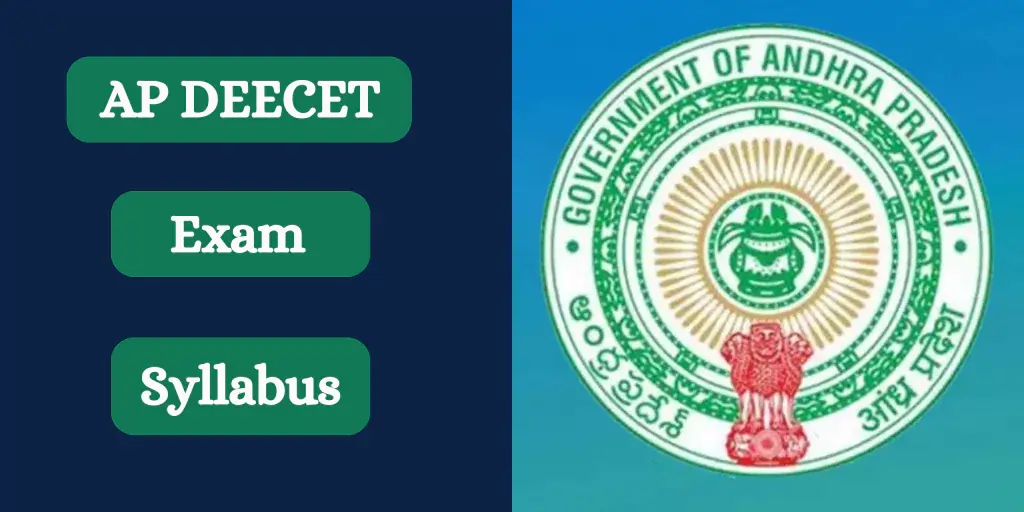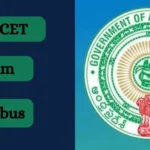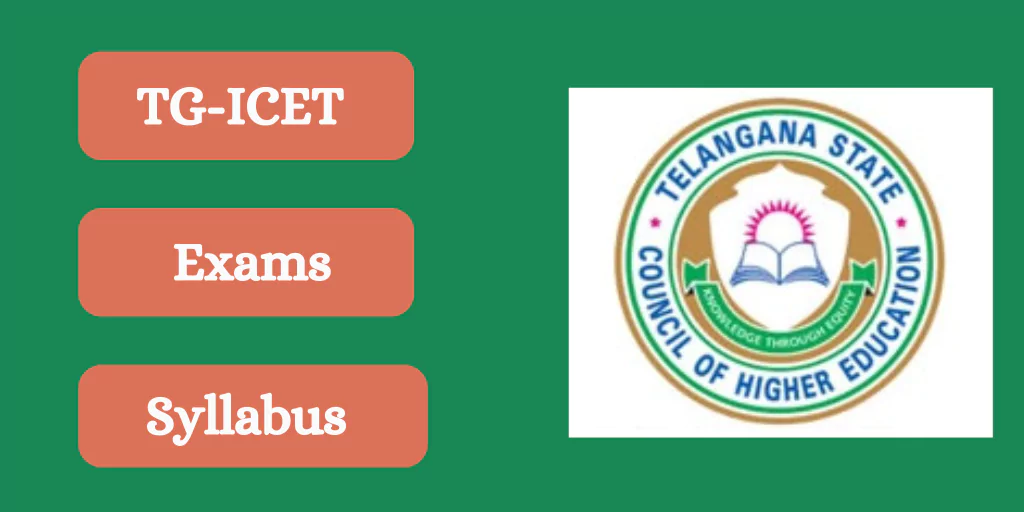Recently updated on May 12th, 2025 at 03:27 pm
The Andhra Pradesh Diploma in Elementary Education Common Entrance Test (AP DEECET) is a test required for admission to Diploma in Elementary Education (D.El.Ed) programs. The AP DEECET syllabus is intended to examine applicants’ understanding of numerous disciplines relevant to elementary-level teaching. Here is a thorough summary of the syllabus.
1. General Knowledge and Teaching Aptitude

General Knowledge:
- Current Events: National and international news, sports, awards, and more.
- Indian History: Major historical events, liberation struggle, and notable figures.
- Geography: India’s physical and political geography, including important rivers, mountains, and capital cities.
- Economics: Basic economic ideas and significant economic events.
- Civics: India’s Constitution, fundamental rights and duties, and political framework.
- General Science: Fundamentals of Physics, Chemistry, and Biology relevant to everyday life.
Teaching Aptitude:
- Teaching Methods and Strategies: Understanding the various teaching methodologies and their applications.
- Classroom Management: Effective classroom management techniques.
- Child Development: Stages of Development, Learning Theories, and Educational Psychology.
- Educational Psychology: Educational psychology focuses on cognitive development, motivation, and evaluation methodologies.
- Curriculum and Syllabus Design: An overview of curriculum development and syllabus design.
2. English

Grammar
- Parts of Speech: Parts of speech include nouns, pronouns, verbs, adjectives, adverbs, conjunctions, prepositions, and interjections.
- Sentence Structure: Sentence structure includes simple, compound, and complicated sentences.
- Tenses: Uses and forms for the present, past, and future tenses.
- Voice and Speech: Active and Passive Voice.
- Reported Speech: Reported speech includes both direct and indirect communication.
Vocabulary
- Synonyms and Antonyms: Understanding words having similar and opposing meanings.
- Word Formation: Word formation includes prefixes, suffixes, and root words.
- Idioms and Phrases: Common idioms and phrases in English.
Comprehension
- Reading Comprehension: Understanding readings, identifying important concepts, and making inferences.
3. Mathematics

Number System:
- Types of Numbers: Number types include natural numbers, whole numbers, integers, rational numbers, and real numbers.
- Basic Operations: Basic operations include addition, subtraction, multiplication, and division.
Algebra:
- Equations: Linear and simple quadratic equations.
- Polynomials: The fundamental polynomial operations.
Geometry:
- Basic Shapes and Properties: Triangles, quadrilaterals, and circles, plus their properties.
- Mensuration: Measuring the perimeter, area, and volume of simple shapes.
Data Handling:
- Statistics: Mean, median, and mode.
- Graphs and Charts: Data interpretation using bar graphs, pie charts, and line graphs.
4. Environmental Studies

Nature and Environment
- Ecosystems: Different types of ecosystems, their components, and how they interact.
- Conservation: The significance of preserving natural resources, environmental concerns, and conservation techniques.
Social Environment
- Society and Culture: Knowledge of social structures, cultural diversity, and community dynamics.
- Health and Hygiene: Fundamental notions about health, personal hygiene, and communal health.
Pedagogy of Environmental Studies
- Teaching Methods: Effective ways for teaching environmental studies to young students.
- Learning Resources: Using educational tools and resources to teach environmental principles.
Preparation Tips:
- Review the syllabus: Fully comprehend the themes and focal areas for each segment of the exam.
- Practice regularly: Familiarise yourself with the exam format by using sample papers and questions from prior years.
- Utilise Study Guides: Refer to standard textbooks and study materials relevant to the syllabus.
Preparing for the AP DEECET exam requires a smart and structured approach to ensure success. Start by understanding the exam pattern and syllabus thoroughly, focusing on both Part A (common subjects like General Knowledge, Teaching Aptitude, etc.) and Part B (optional subjects based on your chosen stream). Create a realistic study timetable, allocating time to each subject daily. Use NCERT textbooks, previous year question papers, and mock tests to build accuracy and speed. Consistent revision, self-assessment, and staying updated with official notifications are key. Smart preparation isn’t just about studying hard — it’s about studying right.
Also See: TS DEECET 2025 Exam
Conclusion:
In conclusion, learning the syllabus for the Andhra Pradesh Diploma in Elementary Education Common Entrance Test (AP DEECET) is critical for exam success. You can lay a solid foundation for the exam by concentrating on General Knowledge, English, Mathematics, and Environmental Studies, as well as applying effective study tactics. Consistent preparation, practice, and a thorough comprehension of the exam format can increase your chances of admission to the D.El.Ed program.







66b login
August 29, 2024Thông qua hệ thống tường lửa WAF 5 lớp và công nghệ mã xác thực 2AF, 66b login ẩn danh tuyệt đối mọi tài khoản người chơi đồng thời, mã hóa toàn bộ hoạt động khi hội viên truy cập, sử dụng dịch vụ, sản phẩm. Vì thế, bạn hoàn toàn có thể yên tâm khi cá cược tại đây. TONY12-11A